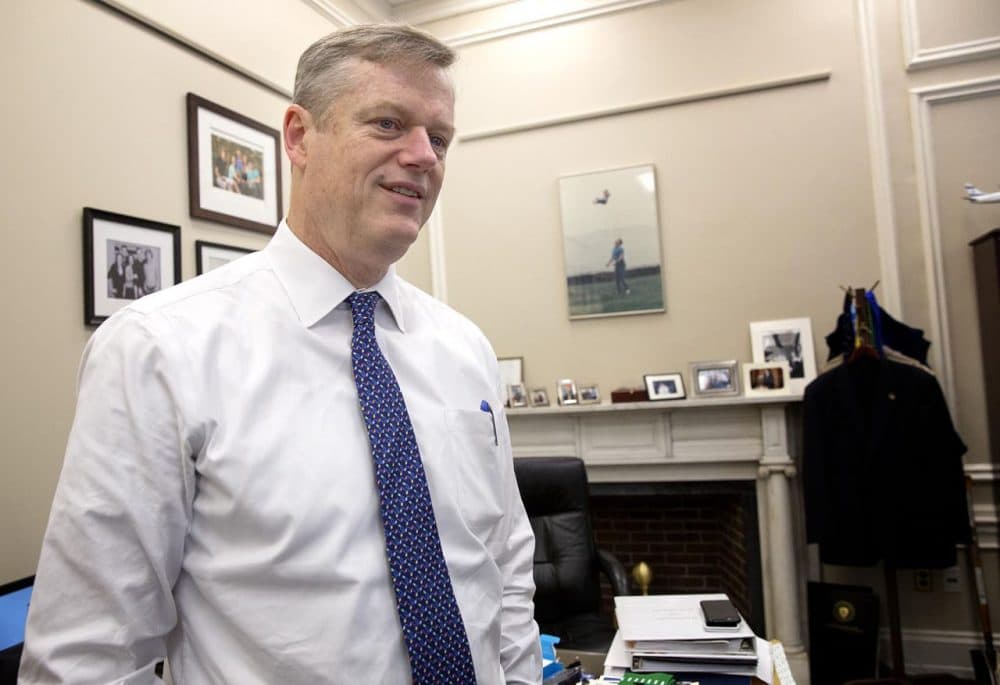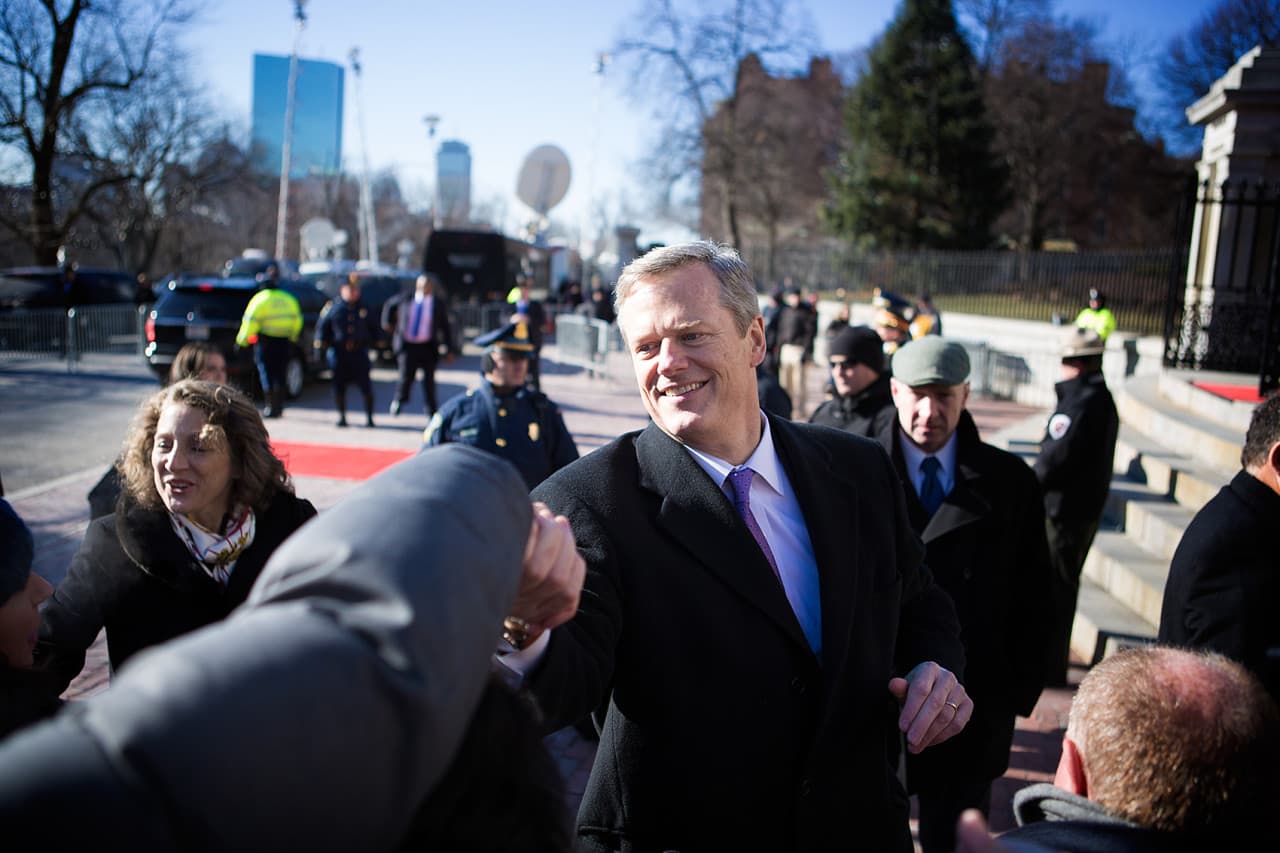Advertisement
Gov. Baker On The Budget, The MBTA And Why He Worries 'A Lot' About DCF
Resume
From last winter's MBTA meltdown to the statewide opioid epidemic, it's been a year of big problems and big proposed fixes for Gov. Charlie Baker. And with his first year in office nearly in the books, the Republican heads into the holidays enjoying widespread approval ratings.
We sat down with the governor at the State House in what he calls his "working office" -- a space covered with family photos and personal memorabilia -- to talk about the year, and challenges ahead.
Interview Highlights
On the looming state budget deficit, estimated to be up to $1 billion
Well, last year the budget started with about a $1.8 billion gap and we worked pretty collaboratively with our colleagues in the Legislature to deal with that. I certainly think that it's important for Massachusetts to get out of the business of using either stabilization [rainy day] fund or one-time revenue to fund its operating budget because that is how you create a structural deficit, but it's probably not the kind of thing that's going to happen all at once -- it's probably going to happen over time.
On his administration's approach to balancing the budget
I would expect that we would take the approach we typically take to this, same one the Legislature takes, which is you pretty much look at everything and your goal is to do what you can to figure out how to solve the problem while doing as little damage as you possibly can to the stuff people care about, and that would certainly be the way we would approach it. I mean, if you look at the way we dealt with last year's [budget], I would describe it as, it was a scalpel approach. I think you're going to see us take that kind of approach again.
On the MBTA control board, fare hikes and the Green Line extension
Every week [the Fiscal and Management Control Board meets], all their conversations around logistics, planning, finance, operations, capital spending, it's all in the public domain. It creates all kinds of news, which may make us all a little uncomfortable, but the bottom line is for the first time ever, the working activity of the MBTA is pretty transparent.
Fare hikes: [The control board has] put pretty much everything on the table and I think they should. There's a whole series of efficiency proposals they're going to be making. They made very clear that the way the agency has managed both abesenteeism and overtime needs a good, solid, hard look. I mean when you have people who worked 4,000 hours last year and made over $300,000, it raises two really big questions; one's about productivity and the other one's about safety.
Green Line extension: The way I think about the Green Line, I think, is quite consistent with the way the folks on the Fiscal and Management Control Board think about it, which is, for the right price, if it's affordable, it doesn't take money away from the core system, I'd certainly be supportive and I think the people on the Fiscal and Management Control Board would be.

On the state's opioid epidemic and pushback on pending legislation
I think obviously there are a bunch of elements to that legislation that are controversial, but I would argue that if you really want to disrupt the incredibly horrible, negative trend that's currently going on in this field, you have to do some disruptive things.
The [Massachusetts Council of Community Hospitals] ... came out last week and supported our proposal because they believe that simply "Narcan-ing" --which is kind of the new buzzword, "Narcan-ing," people who show up in the ER and then just sending them back on the street to go get another fix — is a really bad way of dealing with this. I mean, I think the more the provider community thinks about this, the more comfortable they're going to get with it.
Now, one of the things we need to do is work with them on the logistical issues around making sure that there is treatment capacity available for people if we're going to have clinical capability here.
On what keeps him up at night
I worry a lot about [the Department of Children and Families]. The Bella Bond thing, that is about as big a tragedy as anything I think we faced this year. I really do feel the agency and the state let her down. By not having policies and procedures in place and by not being in a position to provide the guidance and the leadership to the people who were actually on the ground, a whole series of events took place that led to where that landed. I think we are heading in the right direction there, but I really wish we could just freeze-frame everything at DCF, implement all the reforms that need to be implemented there and then, you know, start again.
We're going to move as fast as we can to implement a whole series of reforms that are desperately needed, but in the meantime, we have 47,000 kids and families who we need to deliver for and I worry about the fact that we may not be able to move as quickly as we need to move. That said, I run into people who work for DCF all the time and, to a person, they tell me that this is as positive and hopeful as they've felt about the future of the agency in a long time.
This segment aired on December 24, 2015.

